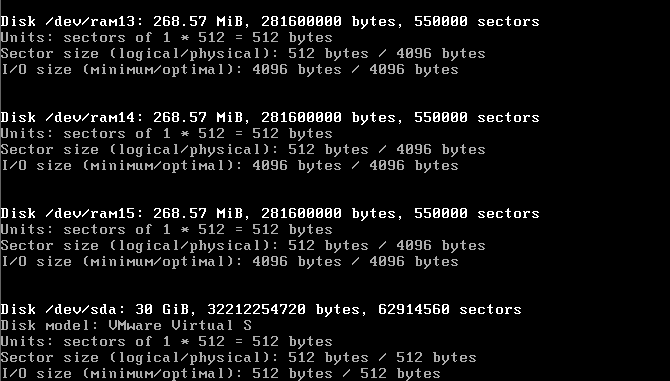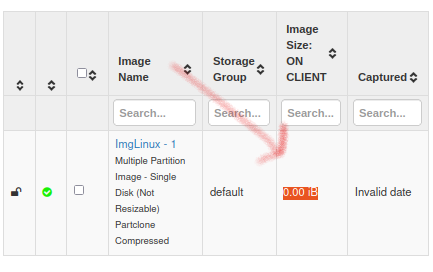Problème de déploiement
-
Bonjour à tous et à toutes,
lorsque j’essaie de déployer depuis ma machine serveur ubuntu 20.04 vers —> ma machine cliente sans OS, j’ai ce message d’erreur qui s’affiche.
“Could not find partitions (/bin/fog.upload)”

Ma deuxième question est de savoir si je dois mettre un iso via VMware tools sur ma machine virtuelle pour le processus de déploiement
N-B : lorsque je vais sur l’interface web de mon fog sur la taille de l’image il y a écrit qu’elle pèse 0. iiB. Peut être que c’est dû à ça je suis perdu. J’essaie déployer du Linux.
Bonne soirée à vous la team !

-
@OmbreIT Looks like there are no partitions on rhe disk you want to capture an image from. My guess is that SoftRAID or LVM was used on the disk and FOG can’t handle that in all cases.
Cancel the old capture task and create a new one but before you click the “Create” button there is a checkbox for debug. Use that, boot up the machine as usual and it will boot up to a screen with a command shell (after hitting ENTER twice). In that command shell you run the following commands, take a picture of the output and post that here:
cat /proc/mdstat lsblk fdisk -l -
Voici le message de la première commande (cat /proc/mdstat) tapez sur le shell en mode debog

Deuxième commande (lsblk) :

3ème commande (fdisk -l) :

Merci pour votre réponse !

-
@ombreit From what I see your source disk does not contain any partitions.
lsblkcommand can see that a sata disk is installed, but it does not have any partitions (data) on the disk.On this computer where you want to capture, does it boot into an operating system? From what we see, I would say NO.
-
@george1421 Non cette machine ne démarre pas sur un système d’exploitation. Sur l’image client fog il y a écrit 0, peut-être cela à un rapport avec ça ?

-
@ombreit I think one of use is confused. I will raise my hand here.
The normal process is to:
- Create an image definition in the FOG Web UI.
- PXE boot a source computer and register the computer with FOG. The source computer will be used as your golden or master image.
- You will then in the web ui connect the new computer with the imaged definition.
- In the web ui you will then schedule a capture task.
- You will pxe boot the target computer and capture or upload the golden image to the FOG server.
When you do step 5, in the picture you last show, the image size on client value will be set. The picture tells me you have not uploaded an image yet to the FOG server.
Also from the picture you gave us with
lsblkthe source computer does not have an image on the disk. So there is nothing to upload to the FOG server.So I don’t understand where is your golden or master image coming from?